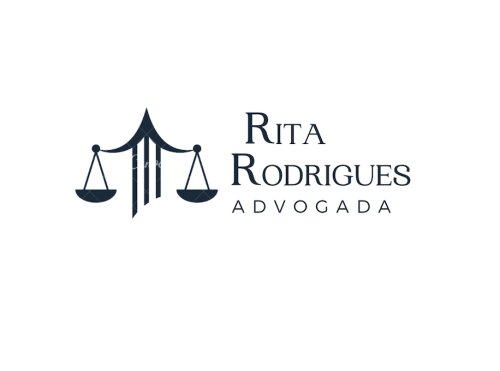Best Divorce & Separation Lawyers in Porto
Share your needs with us, get contacted by law firms.
Free. Takes 2 min.
Free Guide to Hiring a Family Lawyer
List of the best lawyers in Porto, Portugal
About Divorce & Separation Law in Porto, Portugal
Divorce and separation laws in Porto, Portugal are governed by national legislation, providing a structured process for couples who wish to end their marriage or legally separate. Whether the decision is mutual or contested, the law aims to fairly address the division of assets, child custody, spousal support, and other related matters. The legal system is designed to ensure that the rights and interests of both parties and any children involved are protected throughout the process.
Why You May Need a Lawyer
Seeking legal assistance during a divorce or separation can be essential for several reasons. A lawyer knowledgeable in divorce and separation law can help you understand your rights, guide you through complex legal paperwork, and represent you in negotiations or court hearings. Common situations where legal help is needed include disputes over child custody, division of property and debts, disagreement on spousal or child support, cases involving domestic violence, or when one party is uncooperative or resides abroad. Even in amicable separations, a lawyer can help ensure the agreement is fair, legally binding, and enforceable.
Local Laws Overview
In Porto, as in the rest of Portugal, divorce and separation are regulated primarily by the Portuguese Civil Code. There are generally two types of divorce: divorce by mutual consent and contested divorce. - Divorce by mutual consent: This occurs when both spouses agree on the end of the marriage and the terms, such as division of property and child custody. This process is usually faster and can be conducted at the Civil Registry Office if there are no disputes. - Contested divorce: This takes place when one party does not consent, or both cannot agree on all terms. The process is handled through the courts and can be more time-consuming. Either type of divorce requires addressing key matters, including the welfare of any children, living arrangements, and financial settlements. Portuguese law also recognizes legal separation, which allows couples to live apart and divide assets without formally ending the marriage. In all cases, the children's best interests are a priority, and court orders may be issued regarding custody and support.
Frequently Asked Questions
What is the difference between divorce and legal separation in Porto, Portugal?
Divorce legally ends a marriage, allowing both parties to remarry. Legal separation allows spouses to live apart and divide financial responsibilities but does not legally end the marriage. Both processes address child custody and asset division.
How long does the divorce process usually take?
The duration depends on whether the divorce is by mutual consent or contested. Mutual consent divorces can be finalized in a few weeks to months, while contested divorces can take a year or more, depending on the complexity and disputes involved.
Do I have to go to court to get divorced?
If both parties agree and there are no disputes, the process can be handled at the Civil Registry Office without court involvement. Contested divorces or disagreements on key aspects require court proceedings.
How is property divided in a divorce?
Property division depends on the marital property regime chosen at the time of marriage (community or separate property). Generally, assets and debts acquired during the marriage are divided between spouses, but exceptions may apply.
What about child custody and visitation?
Portuguese law prioritizes the best interests of the child. Custody arrangements can be agreed upon by parents or decided by the court. Generally, shared custody is encouraged unless circumstances suggest otherwise.
Can I get financial support from my ex-spouse?
Spousal support, also known as alimony, may be granted if one ex-spouse is unable to support themselves adequately after the divorce. Child support is usually ordered for the benefit of any minors involved.
What are the grounds for a contested divorce?
Grounds for contested divorce include separation for more than one year, significant and irreparable marital breakdown (such as abuse or abandonment), or when mutual consent is not possible.
Is it possible to resolve divorce matters through mediation?
Yes, mediation is encouraged to help couples reach an amicable agreement on issues such as child custody, property division, and support. Mediation can speed up the process and reduce the emotional and financial cost.
How are international marriages or cases involving foreign nationals handled?
Special rules may apply if one or both parties are foreign nationals or the marriage was contracted abroad. The Portuguese courts generally have jurisdiction if the couple resides in Portugal, but international laws and treaties may also influence proceedings.
Do I need to hire a lawyer, or can I represent myself?
While not legally required for all cases, having a lawyer is highly recommended, especially in contested or complex cases. A lawyer ensures your interests are protected and the process goes smoothly.
Additional Resources
- Instituto dos Registos e do Notariado (IRN): Handles civil registry services, including divorce by mutual consent. - Ordem dos Advogados (Portuguese Bar Association): Provides information about qualified lawyers in Porto. - Family and Children's Court of Porto: Responsible for cases involving family law disputes, child custody, and related measures. - Portuguese Ministry of Justice: Offers legal information and access to official documents and procedures on divorce and separation. - Local mediation services: Community centers and mediation services can assist with resolving family disputes amicably.
Next Steps
If you are considering or facing divorce or separation in Porto, Portugal, the first step is often to consult with a qualified family law lawyer. Gather all relevant documents, such as marriage certificates, financial statements, and information regarding any children. Consider mediation services if you and your spouse wish to reach an amicable agreement. Visit your local Civil Registry Office to inquire about the process for divorce by mutual consent or, if the situation is contested, prepare for court involvement. Remember that protecting your rights and the well-being of any children is paramount, and professional legal advice can help you navigate the process confidently.
Lawzana helps you find the best lawyers and law firms in Porto through a curated and pre-screened list of qualified legal professionals. Our platform offers rankings and detailed profiles of attorneys and law firms, allowing you to compare based on practice areas, including Divorce & Separation, experience, and client feedback.
Each profile includes a description of the firm's areas of practice, client reviews, team members and partners, year of establishment, spoken languages, office locations, contact information, social media presence, and any published articles or resources. Most firms on our platform speak English and are experienced in both local and international legal matters.
Get a quote from top-rated law firms in Porto, Portugal — quickly, securely, and without unnecessary hassle.
Disclaimer:
The information provided on this page is for general informational purposes only and does not constitute legal advice. While we strive to ensure the accuracy and relevance of the content, legal information may change over time, and interpretations of the law can vary. You should always consult with a qualified legal professional for advice specific to your situation.
We disclaim all liability for actions taken or not taken based on the content of this page. If you believe any information is incorrect or outdated, please contact us, and we will review and update it where appropriate.












